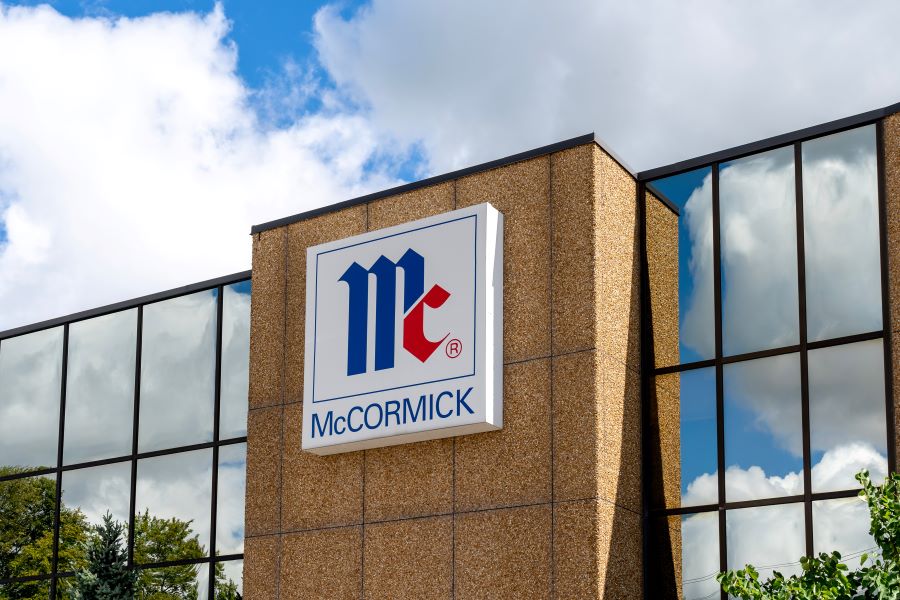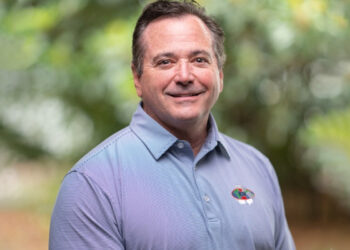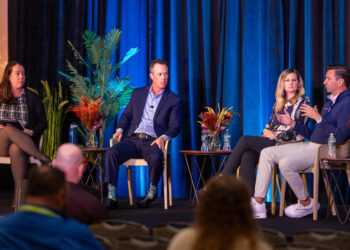Meeting sustainability targets such as increased PCR content are not just the right thing to do but also essential for maintaining high performance, according to the chief sustainability officer at flavoring giant McCormick & Co.
Sustainability “is an existential threat for our business,” said Michael Okoroafor at the Packaging Sustainability Summit in mid-September: “We are not doing this because we are nice, we are doing it for the future of the planet.”
The company has committed to “purpose-led performance” – achieving high financial performance while doing the right thing for its people and the communities in which they live, work and source ingredients. In other words, McCormick believes in “doing well by doing good,” he said.
McCormick is based in Baltimore, Maryland, but has a vested interest in numerous countries, such as Vietnam for black pepper, Nigeria for ginger and India for red pepper. Such countries all are in the global south and are bearing the brunt of climate change, Okoroafor said.
To continue sourcing natural vanilla from Madagascar “into perpetuity,” the company needs to ensure the survival of these farming communities – “similar to the one where I grew up,” Okoroafor added.
Going farther, together
In reaching sustainability goals, McCormick has partnered with PepsiCo and Mars to create a global training program called Supplier Leadership on Climate Transition. The company realized that most of its suppliers also sold to PepsiCo – which is a McCormick customer – and to Mars, which is in some cases a competitor. “It doesn’t matter, because we are in this together,” Okoroafor said.
It’s not just about sharing the cost, he said, citing an African proverb: “If you want to go fast, go alone. If you want to go far, go together.”
In establishing Supplier LOCT, the three companies hired climate consultancy Guidehouse to train the shared suppliers, most of which are very small, he said. Over three years and six cohorts, the program has trained more than 800 suppliers – only about 80 of which are specific to McCormick – and grown to involve 24 consumer packaged goods companies.
Focus on Scope 3
Like many CPGs, McCormick is focusing on reducing its Scope 3 emissions – those that are not produced directly by the company and are out of its control, Okoroafor said. Nearly all of McCormick’s carbon footprint falls under Scope 3, and packaging comprises 8% of its carbon footprint.
“There is no decarbonizing the planet without decarbonizing packaging,” Okoroafor said.
The company is rolling out a revamped version of its iconic red cap for spice containers containing 50% post-consumer PET, resulting in a 20% reduction of McCormick’s carbon footprint, he said.
For its food coloring, McCormick updated packaging to contain 100% PCR and made it lighter and better looking, he said. The small package size compared to the larger red cap of a spice container made the transition less expensive.
In reducing Scope 3 emissions, incorporating PCR is the low-hanging fruit – “if you can afford it,”, Okoroafor said, emphasizing this is a big “if.” Bioplastics and other renewable materials are also part of the solution. However, “the reason we’re doing PCR now is we can quantify it,” whereas with renewables a company must consider where the raw materials are sourced and their environmental impact.
Nevertheless, “these regulatory headwinds that are coming, like it or not, it’s no longer voluntary,” he added.
“The era of make, use, dispose is over. We have to be thinking about make, use, reuse as we go forward,” he said. “At the end of the day, if you’re not going to make an impact, there’s no reason to do it.”


























